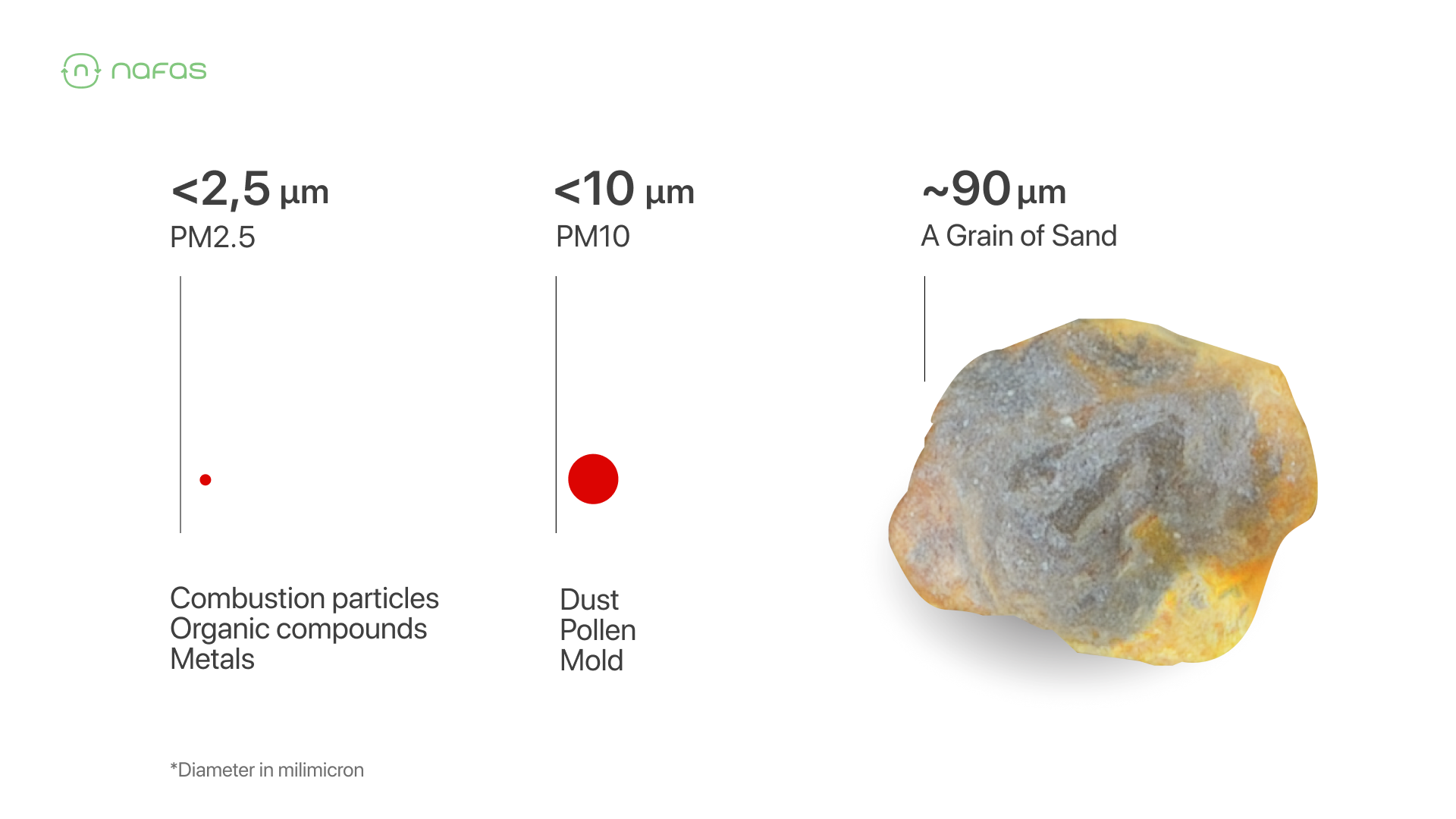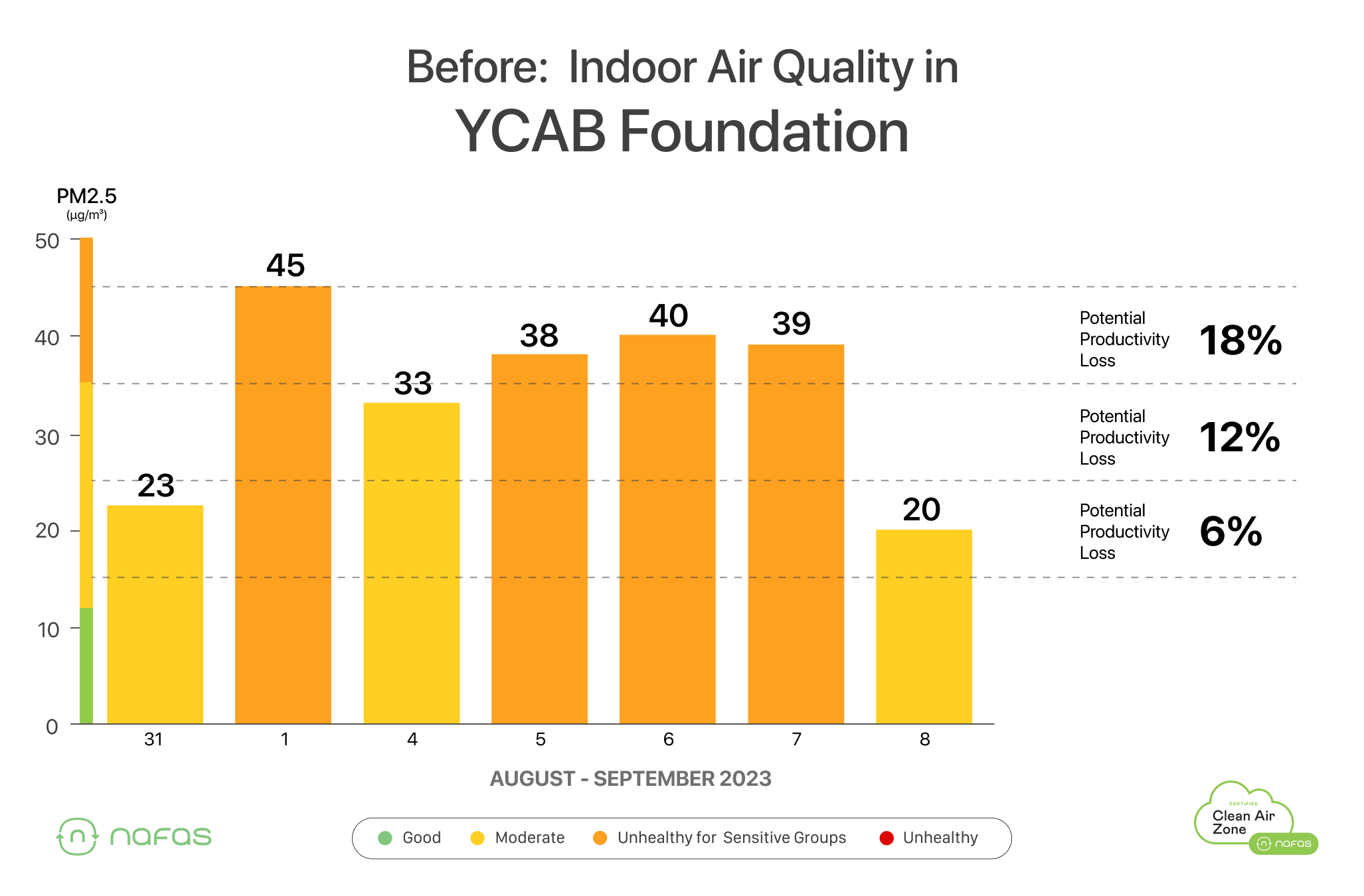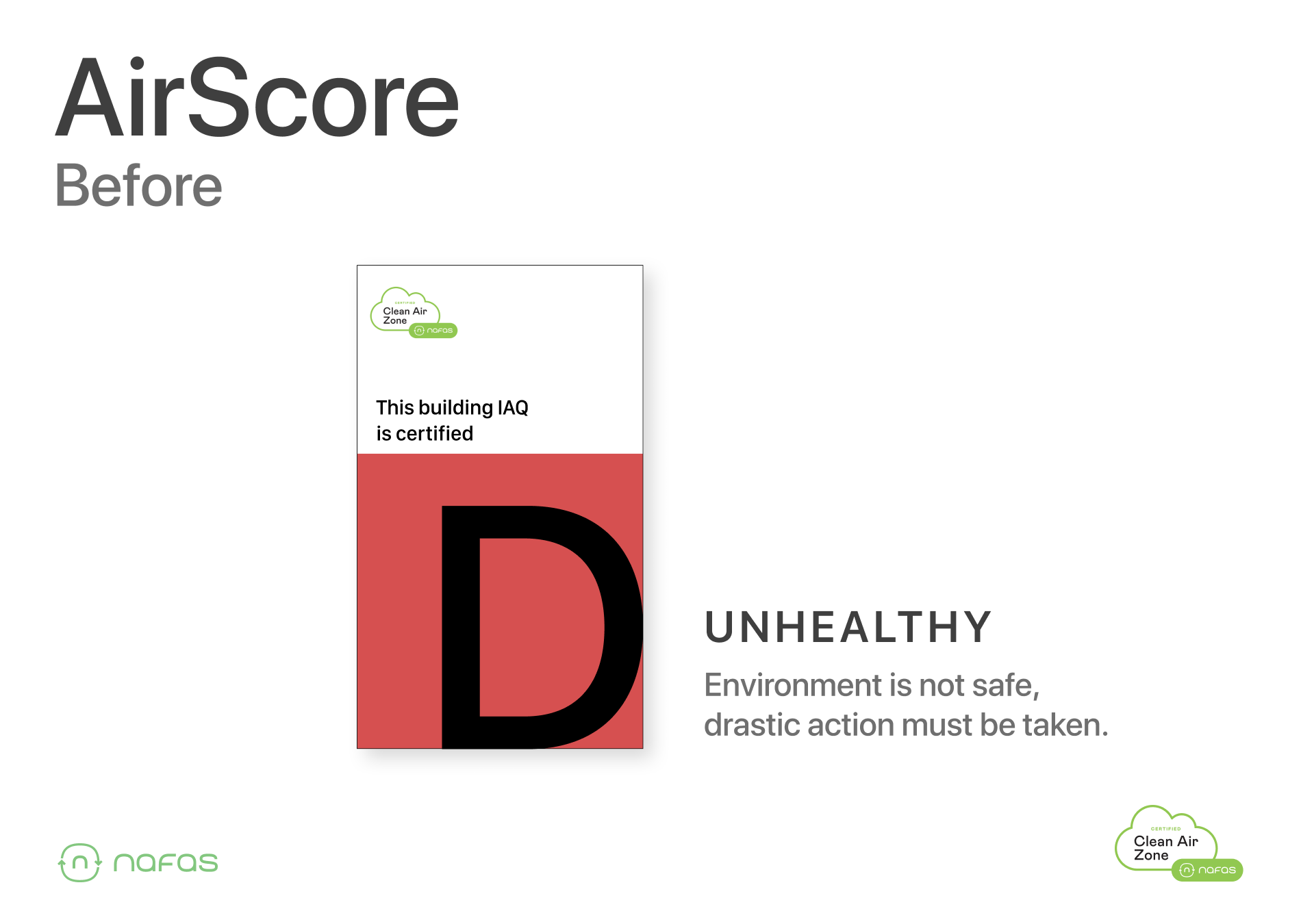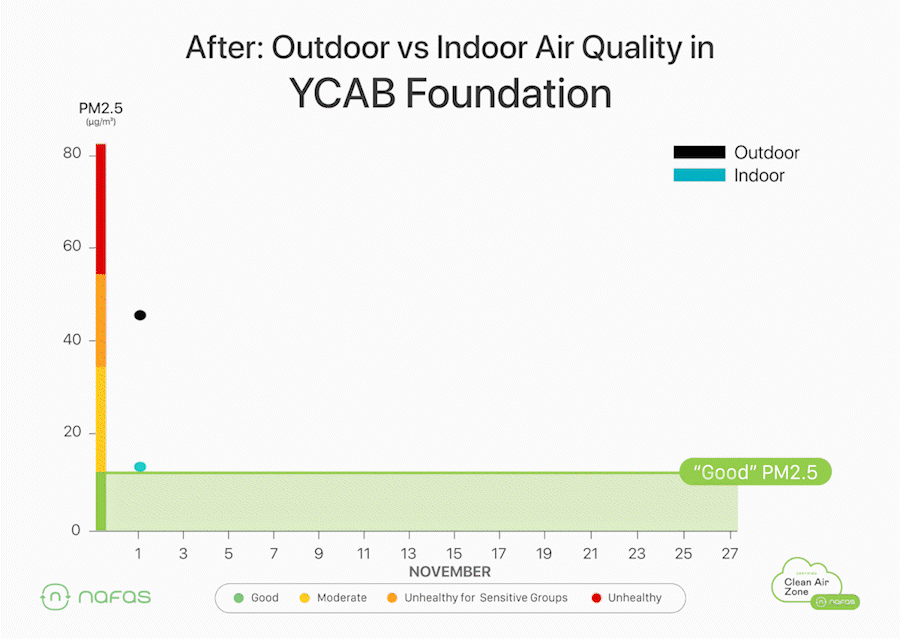LEARN / ARTICLE
CAZ Stories: Nafas Successfully Improved Indoor air Quality at YCAB Foundation by 85%
CAZ Stories is a series of success stories highlighting the impact of Clean Air Zones on diagnosing and fixing indoor air quality problems for businesses in Indonesia. For more insights, read our previous case studies:
- AC Ventures
- Mighty Minds Preschool
- Global shipping company
- Mazars Indonesia
- IShine Kelapa Gading
- New Zealand School Jakarta
Air pollution remains a significant challenge in Jakarta. The city's outdoor air quality paints a concerning picture, with the average PM2.5 concentration for the year-to-date in 2023 recorded at 38 µg/m3. This figure is more than twice the annual average PM2.5 limit of 15 µg/m3 set by the Indonesian National Ambient Air Quality Standard and over seven times the World Health Organization's (WHO) annual recommendation.
The WHO has classified Particulate Matter 2.5 (PM2.5) as extremely hazardous due to its tiny particles that can deeply penetrate our lungs. While PM2.5 poses a threat to the entire population, it presents a greater risk to vulnerable groups such as children under five and adults over sixty.

The diagnostic tests conducted by the Nafas team clearly indicate that the level of PM2.5 pollution leaking from the outdoors into buildings is as high as 100%. This is particularly alarming, especially for residents of heavily polluted areas like Jakarta.
A recent article by Nafas, "How Indoor Air Pollution Impacts Performance in Offices," underscores the significant impact of indoor air pollution on workforce productivity. Outdoor pollutants have the potential to compromise air quality in various indoor settings, including offices, gyms, schools, and residential homes.
Impact of PM2.5 on Productivity and Cognitive Function
In recent years, there has been a growing focus on understanding the influence of the built environment on human performance. Dr. Joseph Allen, the founder of the Harvard Healthy Buildings Institute at the T.H. Chan School of Public Health, has led numerous studies investigating how indoor environments can adversely affect our health.
The 2021 COGFx study explored the effects of indoor air quality on the cognitive performance of office workers in several countries, such as Mexico, India, Thailand, the US, the UK, and China. The findings were quite alarming: at PM2.5 levels above 12 µg/m3, office workers' performance decreased in four out of five cognitive tasks.
A 2016 study conducted by the University of Southern California echoed similar findings but focused on the effect of PM2.5 on productivity and decision-making in factory settings. The research revealed that with every 10 µg/m3 increase in PM2.5 concentrations above a baseline of 15 µg/m3, productivity decreased by 6%.
Recognizing the significance of air quality, Nafas has partnered with the YCAB Foundation to enhance indoor air quality at their main headquarters in Jakarta. This collaboration aims to create a safer and healthier work environment, acknowledging the pivotal role air quality plays in overall workplace well-being and performance.
The problem: Unhealthy Air Quality Inside YCAB Foundation Office
By deploying cloud-connected air quality monitors, Nafas gathered extensive data on PM2.5, CO2, temperature, and humidity levels within the office premises. The initial assessments uncovered a disconcerting reality: the indoor air quality was nearly as poor as the outdoor air.
In order to comprehensively grasp the scope of the problem, we conducted a thorough analysis. Upon closer examination, it became evident that the indoor air quality (indicated by the blue line) consistently exceeded the PM2.5 threshold of 12 µg/m3, a standard set by Dr. Joseph Allen, the founder of the Harvard Healthy Buildings Institute at the T.H. Chan School of Public Health. This significant difference in air quality was evident throughout the entire week.

After conducting a detailed analysis of the weekly data, it became clear that the indoor PM2.5 levels during work hours consistently exceeded 12 µg/m3, the limit recommended by scientific studies, with a monthly average of 42 µg/m3. This situation emphasizes the immediate need for additional filtration measures within the YCAB Foundation office to effectively address the air quality issue.

The final Nafas AirScore for the YCAB Office was given a rating of D, indicating a lack of adequate filtration and an urgent need for improvements to establish a healthy and safe work environment.

The Solution: Turning YCAB Foundation’s Office into a Clean Air Zone
In response to the challenge of combating poor indoor air quality, particularly in heavily polluted cities like Jakarta, Nafas has introduced a solution called Clean Air Zone. Our system is designed to ensure optimal indoor air quality during business hours, employing a comprehensive approach that includes measurement, purification, certification, and data-driven employee engagement programs. With a model requiring no initial investment and adopting a subscription-based approach, enhancing office air quality has never been more accessible.

The YCAB Foundation office underwent a transformation into a designated Clean Air Zone. This pioneering initiative led to a significant enhancement in indoor air quality, facilitated by the collaborative efforts of Nafas and YCAB Foundation.
Notably, the entire system operates autonomously, eliminating the need for additional managerial input or any upfront investment!
The Outcome
Following the implementation, the indoor air pollution inside the YCAB Foundation office during operational hours plummeted below 12 µg/m3, with the monthly average decreasing from 42 µg/m3 to an impressive 6 µg/m3. This represents an almost sevenfold improvement compared to outdoor air quality.

Employees working in a Clean Air Zone office have consistently experienced healthy air quality levels during operational hours.

The air quality inside the YCAB Foundation office consistently achieved a 'Good' rating over a month, leading to an improvement in its AirScore from 'D' to 'A.’

The Monthly Report
Through the data-driven Clean Air Zone service, YCAB Foundation receives monthly reports documenting ongoing air quality metrics. This information is invaluable to management, employees, and staffs, providing them with consistent updates on the air quality within their environment.
Below is an example of the type of report that YCAB Foundation regularly receives.

Becoming a Clean Air Zone is So Easy
Interested in ensuring healthy air quality in your office, gym, school, or home at all times? Feel free to contact us at [email protected] or click the link below. Let's join our mission to make clean air the standard in our offices!
